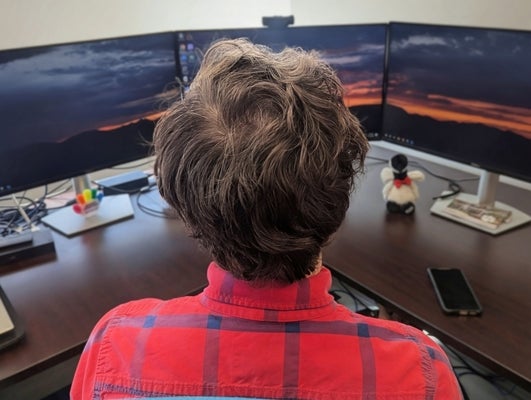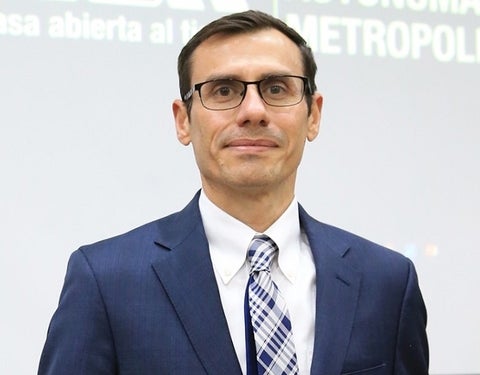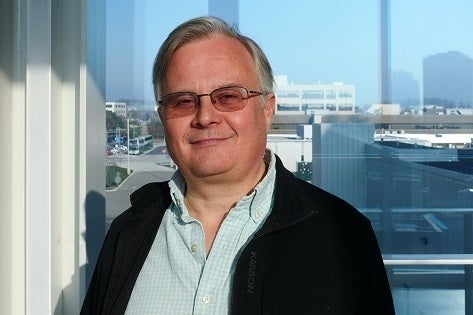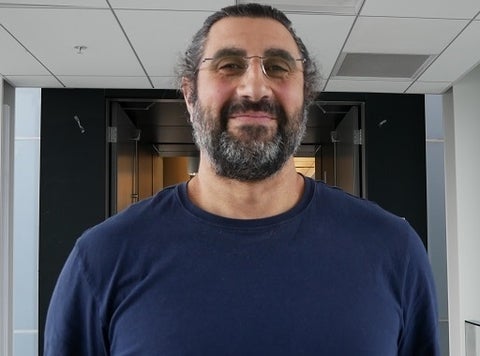
Theme Overview
Process Systems Engineering leverages a broad spectrum of mathematical modeling, data analysis and computational tools, to solve complex engineering problems in a virtual environment. It allows researchers to design more sustainable, profitable, and cost-effective processes and to gain process insights that are difficult or impossible to obtain in a laboratory setting. Process Systems Engineering thus provides indispensable support to all research themes pursued in our laboratories.
Professor Joshua Pulsipher

Professor Joshua Pulsipher's research focuses on developing methods in decision-making uncertainty and data science to tackle engineering challenges in sustainability, the environment, and energy. This is exemplified in his research to assess the resilience of critical energy infrastructure to rare, high-impact events in an effort to prevent disasters like the 2021 Texas power crisis. He developed a framework to quantify the resilience of such systems and identify the vulnerable components that could lead to failures. This framework is orders of magnitude faster than previous techniques, enabling the assessment of real-world-sized systems. Moreover, this is accessible via the open-source software tool FlexibilityAnalysis.jl.
Joshua's group is also pioneering the use of state-of-the-art machine learning models in combination with rigorous decision-making strategies to sustainably mitigate the impact of wildfires. This will enable the use of high-fidelity wildfire and atmospheric chemistry simulators to identify proactive fire treatment strategies that control wildfires while mitigating the effects (e.g., those caused by controlled burn smoke) on neighbouring populations and the climate. To achieve this, his group will work closely with experts in wildfire management, atmospheric chemistry, and computer science across Canada and the U.S. Here, the end goal is to develop an open-source software tool to guide officials in navigating the complexity in effectively managing the widespread impacts of wildfires, especially as climate change fuels an increase in wildfire extent and severity.
Professor Christian Euler

Professor Christian Euler’s research explores the thermodynamics of non-equilibrium chemical reaction systems, of which metabolism is one example. His research fosters an understanding of how thermodynamics constrains these kinds of systems and given their complexity, computational simulations (as opposed to theory development) help close this gap. Within this theme, Euler does both kinetic simulations and constraint-based optimization to find general principles of thermodynamics that can be used to make predictions about how metabolic networks will perform. He’s focused on building better pathways for making chemical products using engineered microbes. This is especially true of products that are made via anabolic pathways – for example, those that make big molecules (like bioplastics) out of small ones (like CO2).
Euler’s research also focuses on using bioinformatics and pathway-finding algorithms to find new metabolic pathways that could be used to turn one-and two-carbon compounds into various useful products. In particular, looking for ways to build novel autocatalytic pathways. These pathways are naturally and probably maximally efficient at converting small molecules into big ones. This theme dovetails with his other research pursuits.
Professor Luis Ricardez-Sandoval

Professor Luis Ricardez-Sandoval and his research group, Chemical Process of Optimization, Multiscale Modelling and Process Systems develop methodologies to integrate design and control applied to chemical processes such as water treatment or distillation systems. This methodology aids industrial partners in meeting production targets and minimizing product variability in the presence of parameter uncertainty.
Using a multiscale modelling approach, Ricardez-Sandoval also develops efficient control strategies for thin film deposition for semiconductor manufacturing. The objective of the research is to develop efficient techniques to improve controllability of multiscale process systems under restricted availability of online measurements taking uncertainty in physical parameters into account.
Another research avenue explored by his group is process improvement and developing modelling studies in advanced CO2 capture and technologically advanced gasification systems. Researchers examine intensified systems such as chemical looping combustion which uses biomass to produce heat and power and capture CO2. Ricardez-Sandoval is a University Research Chair in Multiscale Modelling and Process Systems.
Watch Professor Ricardez-Sandoval's research interest video.
Professor Eric Croiset

Professor Eric Croiset is interested in process modelling of his fuel cells (see Electrochemical Energy Systems Research Theme). He uses process modelling for techno-economic and environmental assessment of the fuel cells. He also does process simulations to assess the life cycle of the fuel cells.
In collaboration with Professor Sandoval, he is investigating in detail the reactions of the cell by doing photochemistry calculations. Using a process called DFT (Density Functional Theory) to examine fuel cells. His research group examines quantifying the captured CO2 and how to reduce water and produce the chemicals or fuels.
This computational process predicts and simulates how the fuel cells will work on a large scale, examining the size of the equipment, cost, how much electricity, water heat and other utilities are needed to produce a cost per unit of the chemicals that can be derived from this technology. Operating parameters are also calculated using DFT to predict the outcome of the process.
Professor Jeff Gostick

Professor Jeff Gostick and his team of researchers in the Porous Materials Engineering & Analysis Lab (PMEAL) measure the characteristics and transport properties of non-conventional porous materials such as electrodes, filters, tissue scaffolds, thin porous films, nanoporous catalysts, and phase segregated polymers.
Gostick has developed his own unique software called OpenPNM which uses a technique known as pore network modelling that is several orders of magnitude faster than conventional modelling approaches for equivalent problems.
Another of Gostick’s research interests is numerical simulation using 3D imaging. Recent work by his group has demonstrated that given nothing but a 3D image of a structure like an electrode, they can predict how it will perform in an operating device.
Professor Nasser Mohieddin Abukhdeir

Professor Nasser Mohieddin Abukhdeir and his Computational Multiphysics Research Group are focused on both industrial and fundamental research on processes involving soft matter, multiphase flows, and phase transition. His research group strengths are in theory and computational methods that are able to capture industrially relevant conditions including Multiphysics, complex geometries, and other phenomena. His research in multiphase flows has predominantly been through projects in collaboration with industrial partners (Shell Canada, Ostara Nutrient Recovery Technologies, Sanofi Pasteur, et al), which has resulted in a broad understanding of the spectrum of multiphase models and the gaps that currently exist for their application to industrial design and optimization of industrial multiphase processes.
Additionally, Prof. Abukhdeir's research group is enhancing multiphase models and providing the research community with numerical solvers for these models through the development of the OpenCMP computational Multiphysics software. This enables his research outcomes to be both easily reproducible (open-source) and available for applications to simulation-based design for the greater community.
Professor Maxime van Der Heijden

Professor Maxime van der Heijden's research group specializes in tailoring porous materials for electrochemical devices, such as redox flow batteries, water electrolyzers, and fuel cells. Their research group bridges the gap between experimental and computational approaches. The computational aspects of van der Heijden’s research group focus on visualizing and characterizing (multiphase) flow through electrochemical reactors using macro- and mesoscale computational approaches, including continuum macroscale fluid dynamic simulations and pore-scale models. Additionally, they optimize porous materials through strategies such as coupling pore-scale models with machine learning and heuristic algorithms to enhance the charge, mass, and heat transport within the porous media.
Professor Hector Budman

Professor Hector Budman’s research in Computational Chemical Engineering is related to his expertise in the Biomedical and Biotechnical research theme.
Budman works on the application of process systems engineering techniques, including modelling, control, and optimization to biotechnological problems (see Budmans’ research description on the Biotechnology & Biomedical Research Theme page).
He is also developing theoretical approaches to fault diagnosis and detection and robust control and optimization for chemical processes with model uncertainty.